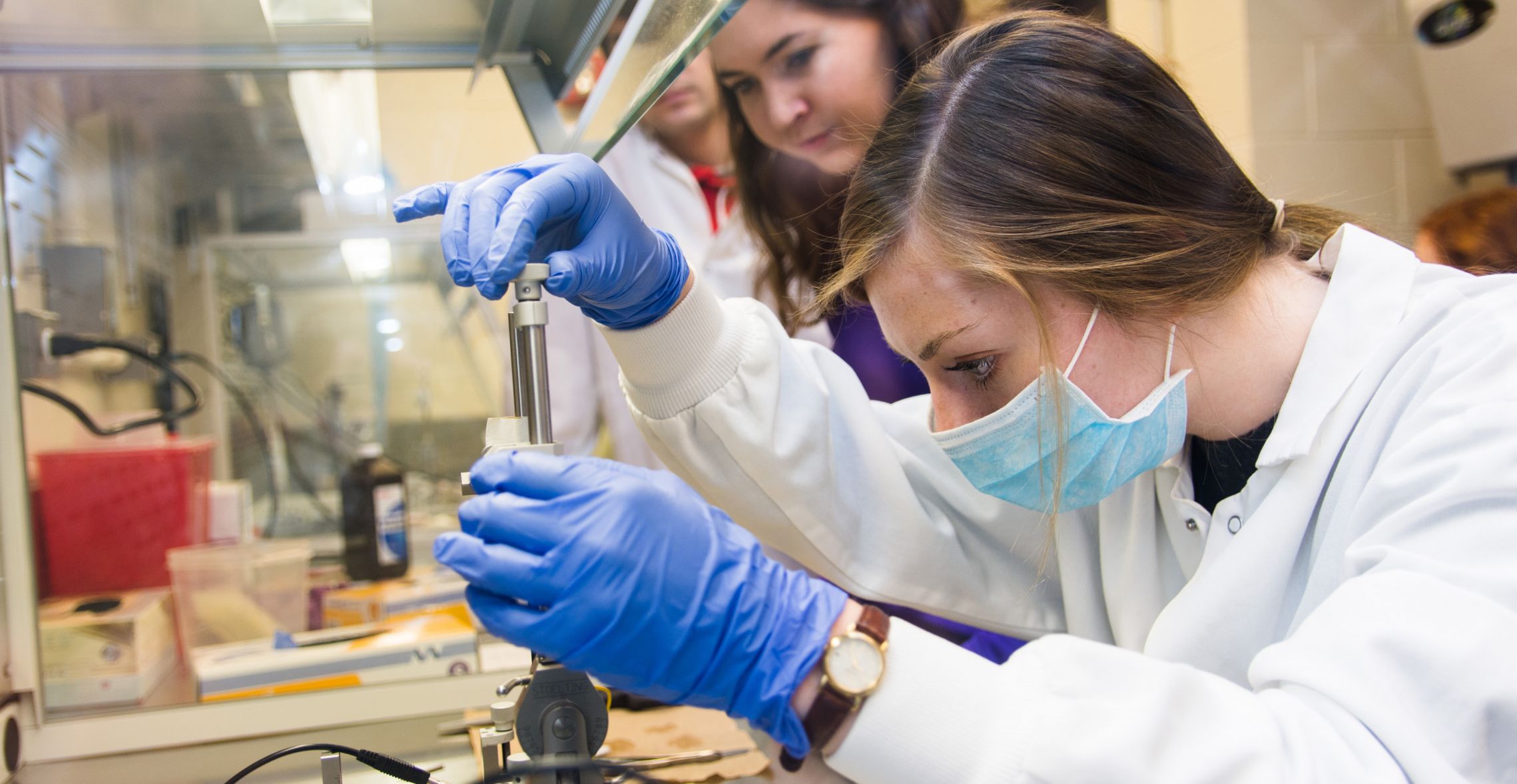Neuroscience Student Opportunities
Undergraduate Research
Giving science students opportunities to do real research, guided by faculty, is a priority at Carthage. Carthage’s Neuroscience Department offers a variety of research opportunities, including opportunities for students to present their findings at local, regional, and national conferences. Students can work with Professor Dan Miller in the rodent colony; Professor Steve Henle on optic nerve regeneration; or with biology professors Paul Martino and Justin Miller on neurophysiology.
Read more about research in neuroscience
Learn about undergraduate research at Carthage
Pre-Health
Carthage offers many ways for students to prepare for medical school or graduate programs for the health professions. Carthage serves students who are interested in dentistry, medicine, nursing, occupational therapy, optometry, pharmacy, physical therapy, veterinary, and physician’s assistant. Pre-health students are assigned a faculty advisor who will assist them in determining which courses they should take and which career best suits their interests and ultimate goals.
SURE: Summer Undergraduate Research Experience
SURE offers Carthage students the opportunity to work one-on-one with a professor during the summer doing real research work. Students receive a stipend, room and board on campus, and a small research budget. Through the SURE program, neuroscience students have studied:
- Studying the Hippo Pathway in Zebrafish Optics (2019)
- Understanding the Role of the Hippo Pathway in the Optic Nerve Development and Regeneration (2019)
- The contribution of endogenous glutamatergic input in the ventral respiratory column to respiratory rhythm (2018)
- Elevated cortisol and alpha-amylase levels on behavior inhibited individuals exposed to physiological stress: Implications for enhanced associative plasticity with anxiety vulnerability (2018)
- Confocal microscopy and structural plasticity in the hippocampus and amygdala in a rat model for anxiety and stress disorder (2016)
- Characterization of Chondroitin Sulfate Proteoglycan NG2 Knockout in axon growth permissive and inhibitory astrocyte cell lines (2016)
- Characterization of a neuron-astrocyte cell line co-culture system for investigating neurite growth (2016)
- Avoidance learning and retention in behaviorally inhibited rodent modules
- The effects of acute stress on recognition memory for neutral and social information
- The role of the cerebellum in the acquisition and retention of avoidance learning in anxiety-vulnerable rats
- Cloning and expression of cellulase in E. coli
- Characterization of the bacterial Small RNA Goldilocks
- Neuroanatomy and physiology in an anxiety-vulnerable rat strain
J-Term
January Term is a month-long period of study in January in which all academic departments at Carthage offer innovative courses on campus, as well as study tours around the world. The Neuroscience Department offers some of the College’s most popular J-Term study tours, including Biodiversity, Brains, and Behavior in Honduras, in which students study the ecology of a Caribbean coral reef ecosystem while learning about the evolution of nervous systems and behavior.
Double Major
The interdisciplinary nature of the neuroscience major allows students to double major or minor in other academic disciplines. In particular, a number of courses in the neuroscience major also satisfy requirements in the psychology, biology, and chemistry majors. Find out more about biology, chemistry, and psychology at Carthage.
Student Fellows
Like many academic departments and programs at Carthage, the Neuroscience Department offers students the opportunity to work for the department in return for a scholarship. The department appoints one student fellow each year. The fellow receives a reduction in tuition, assists faculty, and offers other students free tutoring.

